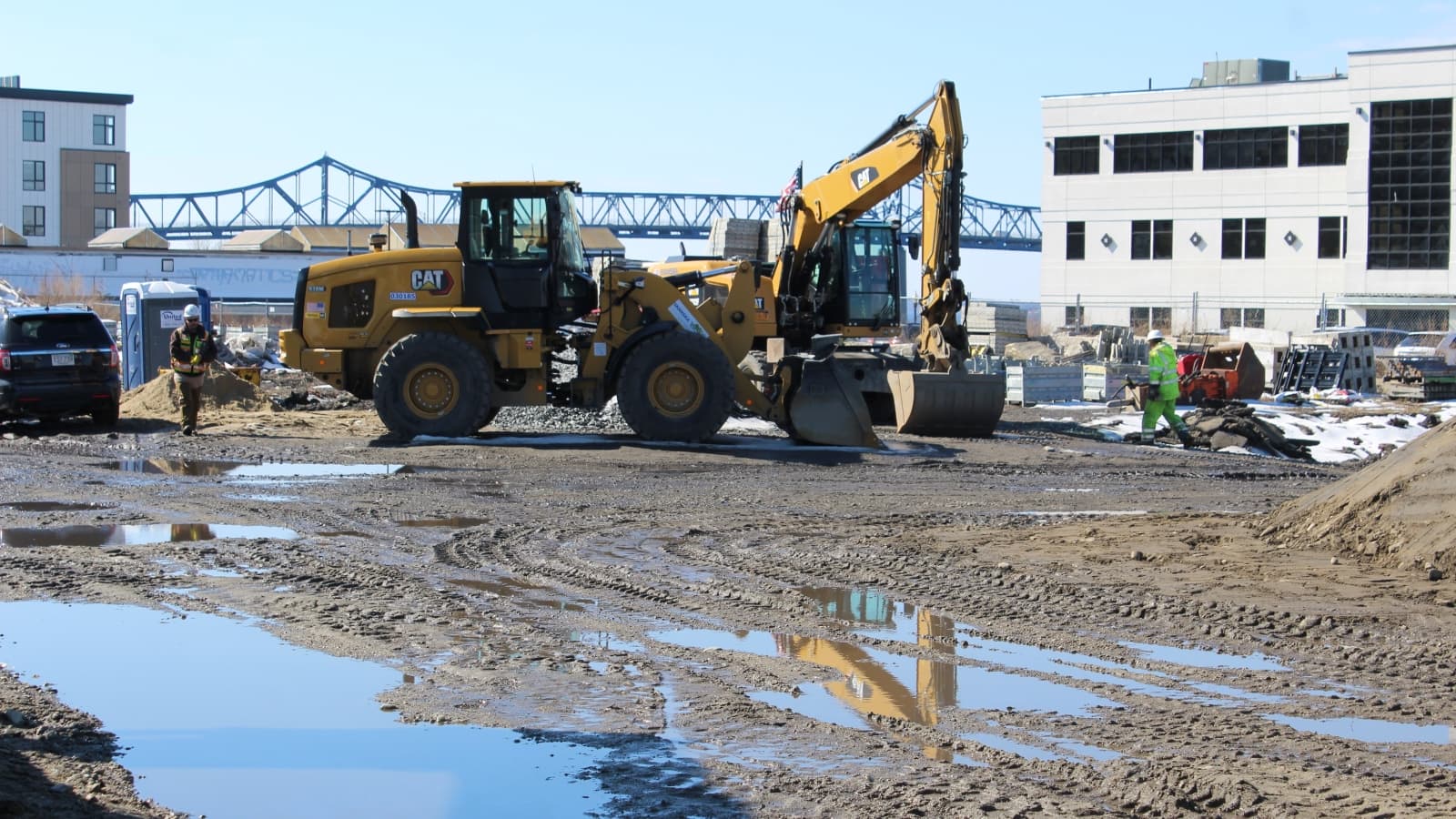Advertisement
In bid for service sooner, South Coast Rail takes the long way to Boston

The journey from New Bedford to Boston is long and expensive for anyone unable or unwilling to make the 60 mile drive north by car.
Private buses leave downtown New Bedford at 5 a.m. and 7 a.m. for a roundtrip price of $31, and a slightly cheaper train departs once an hour from a station several towns north.
For Melissa Batchilder, who commutes to a job in downtown Boston at a cannabis wellness company, the nearly two-hour journey includes a 30 minute drive from the suburb of New Bedford where she lives to the nearest train station on the Middleboro-Lakeville town line.
“I left home just after 7 a.m. and I’ll get to Boston at just after 9 a.m.,” she said.
For commuters like Batchilder who rely on a patchwork of public and private options to get from the South Coast to Boston, the latest expansion of the MBTA’s commuter rail will be a welcome improvement.
“It’s been nothing for so long that anything feels great,” Batchilder said.
As early as next year, the MBTA plans to finish a long-awaited restoration of train service to the cities of New Bedford, Taunton and Fall River. But as South Coast Rail gets ready to open at the end of 2023, some hard truths about what train service will look like are becoming clearer.

MBTA officials say the trip between New Bedford and Boston is expected to clock in around 90 minutes, longer than the average car commute. The train will not be making downtown stops in any of the South Coast cities it passes through, as stations are being constructed a short drive away to save money. And the MBTA has issued no guarantees that South Coast Rail will run on the weekends.
For some who have been fighting for decades to get trains to the South Coast, an infrequent, hour-and-a-half train ride to Boston is a bittersweet final product.
“I’d love to be wrong on this, but I think it will be sort of obsolete as it opens up,” said Marc Pacheco, a longtime state senator from Taunton who said he’s been working toward the restoration of train service since the 1980s.
The last commuter trains to run between Boston and the South Coast ended service in 1959, right as the state’s newly constructed interstate highways hastened a shift from trains to automobiles for most commuters.
Advertisement
But today, faced with a warming climate caused in part by auto emissions, and some of the worst car traffic in the nation, the MBTA has been slowly rebuilding the region’s once-profitable train network. Of all the cities in Massachusetts within 60 miles of Boston, Fall River, New Bedford and Taunton are the last to see train service restored.
Much of the criticism aimed at South Coast Rail is focused on the path the train is taking to Boston. State transportation planners shifted the project onto a slower and cheaper route after an environmental group threatened to sue over the rebuilding of railroad tracks in the Hockmock swamp, the state’s largest contiguous wetland.
Jarred Johnson, a director of the public transit advocacy group TransitMatters, said the compromise will add about 25 minutes to the trip from New Bedford to Boston, although an MBTA spokesperson estimates the difference will be closer to 15 minutes.
Johnson said the detour will also limit the number of trains that can travel to the South Coast each day because it sends them through the tightest choke point in the MBTA’s commuter rail system: a stretch of single track beginning in Braintree where regional trains run alongside Boston’s subway.
“Imagine you have the world's narrowest hallway where only one person can fit down it,” Johnson said. “And imagine that hallway is nine miles long.”
Skeptics of the project say these barriers to fast, frequent service will reduce opportunities for new tourism and development in New Bedford, Fall River and Taunton — cities that have struggled financially since the decline of manufacturing there.
“I’m a big supporter of the project, but I also think the public needs to be realistic about its benefits,” said New Bedford Mayor Jon Mitchell. “An indirect route to Boston on the rail is not going to usher in prosperity.”
The other question looming over South Coast Rail is whether the state will follow through on Gov. Charlie Baker’s promise to return to the project and construct the faster route to Boston after the governor leaves office in January.
Last week, the MBTA unveiled a five-year capital plan with no financial commitments to this second phase of construction beyond a previous earmark for “preliminary engineering design.”
The MBTA is now asking for public input on the plan. Commuters from the South Coast are free to weigh in at a series of virtual public meetings on March 31, April 6 and April 12.
This story was originally published by The Public's Radio. The Public’s Radio and WBUR have a partnership in which the news organizations share stories and resources.